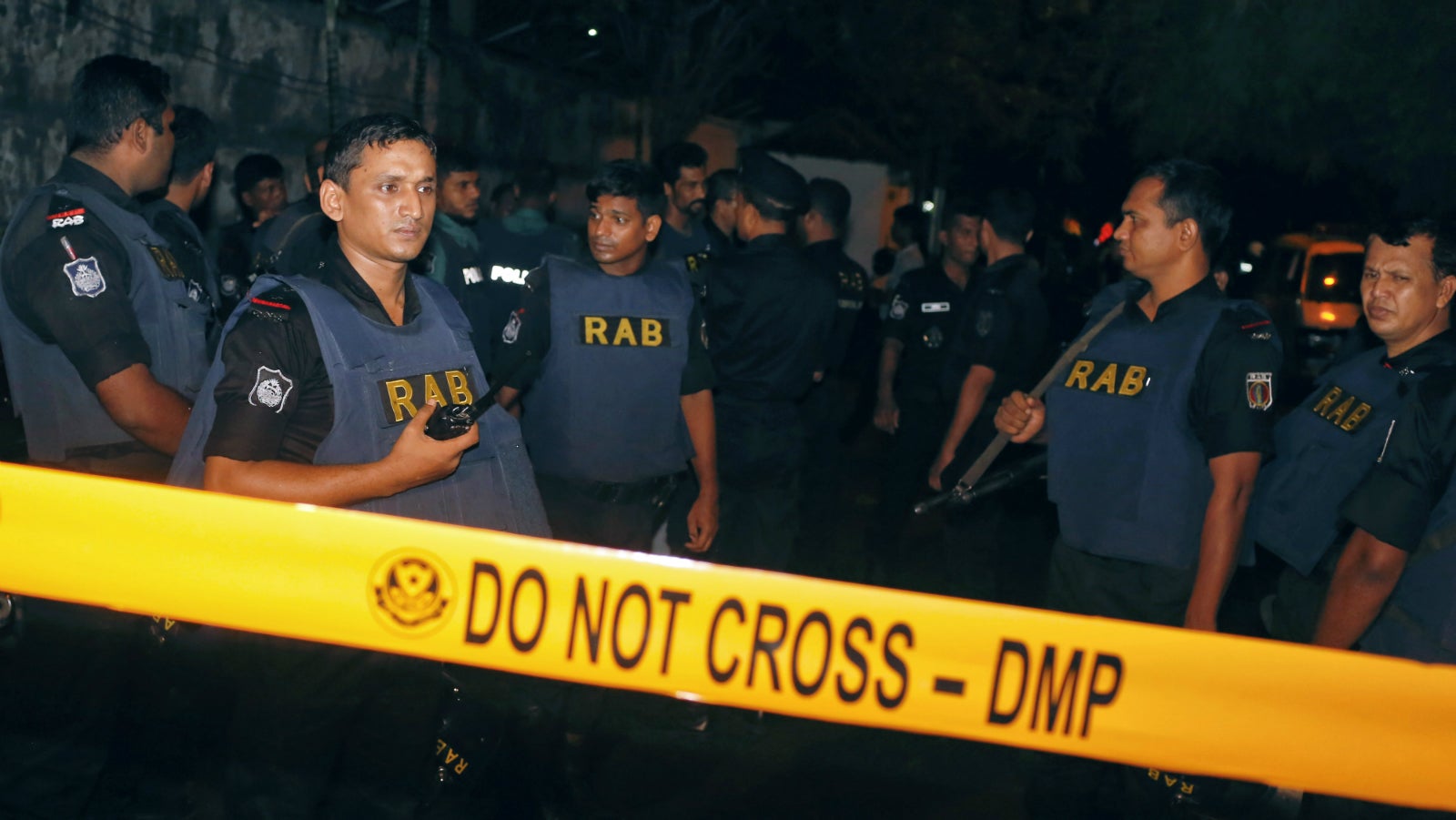Why the Dhaka terror attack is shockingly unsurprising—and a warning for India
One of the saddest aspects of last week’s attack on a cafe in the Bangladeshi capital is that it doesn’t surprise anyone who has been closely following the country in the recent past.


One of the saddest aspects of last week’s attack on a cafe in the Bangladeshi capital is that it doesn’t surprise anyone who has been closely following the country in the recent past.
On July 1, gunmen took multiple hostages at the Holey Artisan Bakery in Dhaka’s diplomatic area. Reports said, the siege lasted almost 10 hours. Six gunmen were shot dead by security forces, while over 20 hostages—mostly foreigners—were killed.
“Most (of) them had been brutally hacked to death with sharp weapons,” Bangladesh army spokesman Brigadier General Nayeem Ashfaq Chowdhury said on Saturday.
One terrorist was reportedly captured alive.
The Islamic State (ISIL) has claimed responsibility for the attack, which took place on the eve of one of the holiest nights in the Islamic calendar. Amaq, an information outlet linked to the terror group, was releasing details of the attack almost live, suggesting that the operatives were in touch with their handlers during the carnage.
This is also the deadliest attack by ISIL in India’s immediate neighbourhood.
Yet, why isn’t it surprising?
In the last few months, Bangladesh has witnessed killings of secular bloggers, atheists, gay rights activists, and members of religious minorities by Islamists. Just hours before the Dhaka siege, a Hindu priest was murdered as he was gathering flowers in Bangladesh’s southwestern district of Jhenakdah.
In almost all these cases, the victims were hacked to death—a signature of the ISIL. The killings at Holey Artisan Bakery were no different.
In the past, ISIL has declared ambitious plans to take over entire South Asia, including India. Now, it seems it wants to focus on softer and relatively easier spots, and Bangladesh fits that bill.
The country’s political discretion and a half-hearted crackdown on Islamists indicate a sense of denial. This, in turn, has been exploited by extremist elements.
Also, in recent years, Bangladesh has put to trial many Islamic extremists who had indulged in gruesome violence during the build-up to its independence in 1971. These trials fuelled discontent amongst the country’s radical elements, who, in turn, may have instigated many to join ISIL.
Meanwhile, prime minister Sheikh Hasina’s government has clearly had trouble acknowledging and understanding the problem. Despite growing intelligence about creeping ISIL and Al Qaeda presence in Bangladesh, which has over 150 million Muslims, government officials have blamed opposition leaders and foreign intelligence agents for the recent attacks.
However, no attempts to mask the trend can fool anyone.
Last week’s attack on the Dhaka cafe was reportedly the 19th such claimed by ISIL—11 of them in 2015 alone—according to researcher Amarnath Amarasingam of the George Washington University. On June 29, the second anniversary of the “founding” of the caliphate by ISIL in Iraq and Syria, a graph released by Amaq indicated the “presence of IS’s covert units” in Bangladesh.
Meanwhile, even though ISIL has claimed responsibility for the Holey Artisan Bakery episode, some experts believe that the Al Qaeda in South Asia (Aqisa), formed in 2014, could also be behind such events. Aqisa, the experts suggest, may be looking to create its own space against ISIL.
Even in the past, attacks possibly carried out by local militant organisations such as Ansarullah Bangla Team (ABT) or the Jamaat-ul-Mujahideen Bangladesh (JMB) were claimed by ISIL unilaterally.
Many experts believe that the free availability of ISIL propaganda material online is the main cause for radicalisation of Muslims in places like Bangladesh. However, this may not be accurate. Jason Burke, author of “The New Threat,” says that the idea of online radicalisation is being “overplayed” and that “peer contacts and networking” are much more important to investigate. In fact, it is believed that a former Canadian national named Tamim Chowdhury, who was even profiled by ISIL’s official magazine Dabiq, leads the group’s Bangladesh unit.
The truth is that there is no one uniform method of tackling ISIL extremism. As the terror group loses ground in Iraq and Syria, its attacks in Bangladesh could now increase in frequency.
It is now Dhaka’s prerogative to make sure Bangladesh is ready to tackle such an upsurge.
Given how porous the India-Bangladesh border is, India should particularly be worried. While India has not been affected much by the pro-ISIL activities yet, the group’s influence is evident in the country.
Last month, the National Investigation Agency said it had arrested five ISIL members from the south Indian city of Hyderabad; they were allegedly planning multiple attacks on the city. In 2014, an Indian engineer from Bengaluru, Mehdi Masroor Biswas, was found to be operating one of the most popular pro-ISIL Twitter handles.
Thus, given the circumstances, New Delhi must reach out to Dhaka and offer all assistance, both in terms of equipment and intelligence-sharing. The security of entire South Asia is at risk.
We welcome your comments at [email protected].